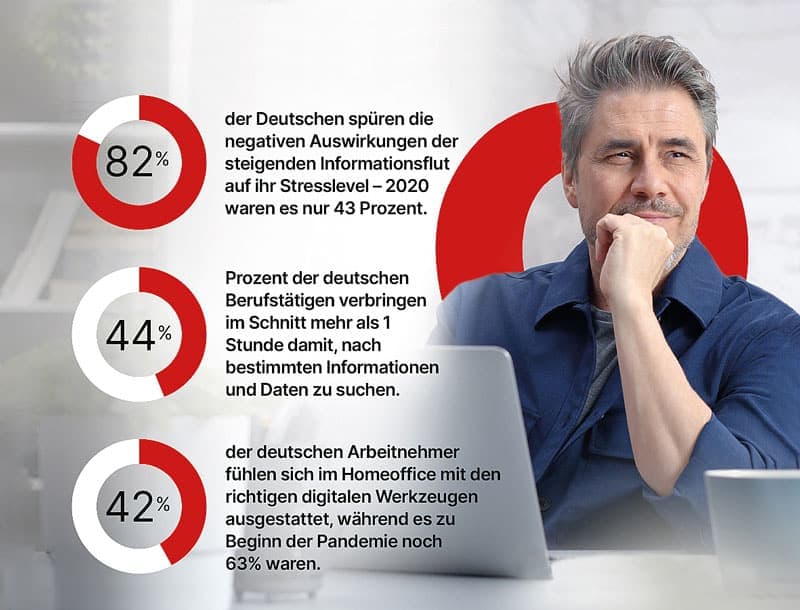

Information overload: 82 percent of all Germans are stressed out
82 percent of Germans feel stressed by the increasing flood of information. This was the finding of a recent global survey of 27,000 consumers, including 2000 Germans, commissioned by OpenText. This stress is caused by the constant flow of data across different devices, social media or the increasing number of applications workers are exposed to in their daily work. The results also reflect the extent to which perceptions of and coping with growing volumes of information have evolved during the pandemic. In 2020, for example, only 43 percent of respondents said that information overload contributed to their stress at work.
While hybrid working models are becoming firmly established in our work culture, only 42 percent of respondents in Germany are confident that they have the right tools to work productively from home. Surprisingly, this figure has fallen since 2020: two years ago, 63 percent thought they were well equipped to meet the digital challenges of the home office. The paradox here is that the number of tools and applications used has increased since 2020! For example, 44 percent of respondents use between six and ten different tools and applications every day (2020: 16 percent) to access information; 26 percent even need at least eleven in their day-to-day work (2020: 14 percent).
In addition to the far too confusing selection of applications, data silos that are distributed across the corporate IT landscape and thus more difficult to access contribute to increasing inefficiency. Nearly half of German consumers spend at least an hour a day searching the corporate network or shared systems for work-relevant information and data. They often do not know where current information is located (32 percent), which makes their work even more difficult.
In addition, 23 percent of respondents believe that their colleagues do not share current document versions on shared file shares, but store them locally on their computers. As a result, relevant information is withheld, lost or even illegally stored locally.







